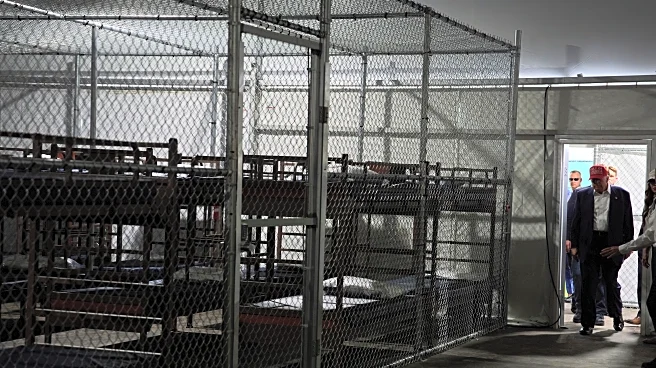What's Happening?
A Chinese intern at Nvidia found himself in a legal and workplace conflict after winning a RTX 5060 graphics card at a company-sponsored event. The intern, who attended the event in Suzhou as part of a business trip, won the graphics card in a raffle. Upon returning to Shanghai, he was informed by a coworker that the company's finance department considered the prize as corporate property, since the trip was business-related. Despite no formal request from finance to return the GPU, the intern faced pressure from HR to resign, which he did on November 19. Legal experts have stated that the intern was within his rights to keep the prize, as it was won through random chance at a public event, not tied to his professional duties.
Why It's Important?
This incident highlights
the ongoing debate over employee rights and corporate ownership in the workplace. The intern's resignation and the subsequent public backlash against Nvidia's actions underscore the tension between corporate policies and individual autonomy. The case has resonated widely, particularly among young workers in tech industries, who are increasingly unwilling to compromise personal agency for corporate demands. The legal consensus supporting the intern's position may influence future disputes over similar issues, potentially prompting companies to clarify policies regarding employee participation in public events.
What's Next?
The company involved has not issued a public statement, leaving its identity unknown and amplifying perceptions of corporate overreach. The incident may prompt Nvidia and other companies to reevaluate their policies on employee participation in public events and the ownership of prizes won during such activities. As the story continues to gain traction online, it could lead to broader discussions about workplace culture and the boundaries between professional and personal spaces.
Beyond the Headlines
The intern's decision to resign rather than comply with corporate pressure reflects a cultural shift among younger workers, particularly in tech-forward industries. This generation is increasingly prioritizing personal autonomy and challenging traditional corporate structures. The viral nature of this story may encourage more employees to stand up for their rights, potentially leading to changes in how companies handle similar situations in the future.
















